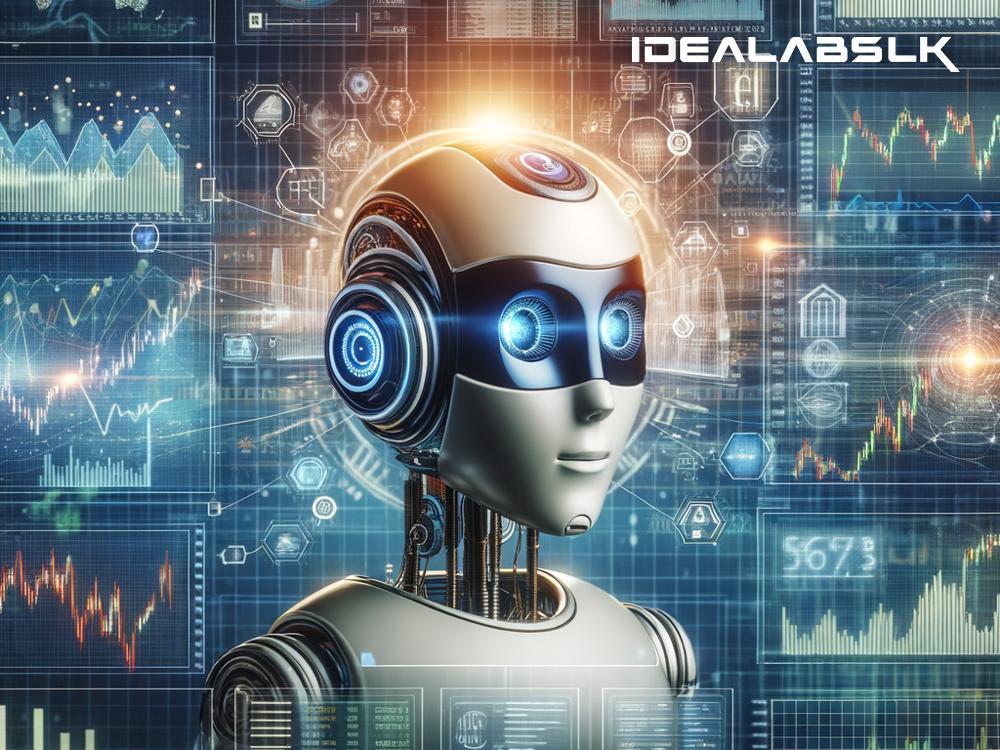AI in Trading: Shaping the Future of Financial Markets
In today's fast-paced world, technology is revolutionizing nearly every aspect of our lives, and the financial markets are no exception. One of the most groundbreaking advancements in this domain is the integration of Artificial Intelligence (AI) into trading. This fusion is not just changing the game—it's reshaping the very fabric of the financial markets as we know them. But what exactly is AI in trading, and how is it crafting the future of financial markets? Let's dive in and explore this fascinating development.
Understanding AI in Trading
At its core, AI involves machines or computer systems performing tasks that typically require human intelligence. This includes learning from experiences, solving complex problems, and even understanding human language. When it comes to trading, AI leverages algorithms and machine learning to analyze vast amounts of data at incredible speeds, something a human trader could never do within the same timeframe. This capability allows AI systems to identify trends, forecast market movements, and execute trades with precision and efficiency that outmatches even the most skilled human traders.
The Impact of AI on Financial Markets
The introduction of AI in trading is transforming the financial markets in several significant ways:
-
Enhanced Market Efficiency: AI systems can process and analyze data from multiple sources—including market indicators, social media sentiment, and economic reports—in real-time. This ability to digest and make sense of vast streams of information enhances market efficiency by ensuring that prices reflect all available information.
-
Improved Decision Making: AI's predictive analytics can forecast market trends more accurately, helping traders and investors make more informed decisions. Unlike humans, AI can remain objective, unaffected by emotions such as fear or greed that often lead to poor trading decisions.
-
Increased Speed and Volume: AI can execute trades at a speed and volume unimaginable for human traders. This high-frequency trading can exploit even the smallest price differences and opportunities that appear for mere seconds in the markets.
-
Customization and Personalization: AI algorithms can learn from an individual's trading behavior and preferences, offering personalized trading advice and strategies. This bespoke approach can significantly enhance individual investment outcomes.
The Future is Now
The integration of AI in trading is not a distant futuristic vision—it's happening here and now. Major financial institutions and hedge funds are already leveraging AI to gain a competitive edge. Moreover, AI is becoming more accessible to individual traders and investors, thanks to the proliferation of AI-powered trading platforms and apps. This democratization of AI in trading signifies a major shift, where not only the big players but also retail investors can harness the power of AI.
The Ethical and Regulatory Landscape
As with any disruptive technology, the rise of AI in trading brings its share of challenges, particularly regarding ethics and regulation. The potential for market manipulation, privacy concerns, and the risk of significant financial losses due to algorithmic errors are real. Thus, there is a growing call for transparent and ethical AI practices, as well as comprehensive regulatory frameworks to safeguard the integrity of the financial markets.
Furthermore, the increasing reliance on AI systems raises questions about the future role of human traders. While AI can outperform humans in data analysis and executing trades, the human ability to understand context, exercise judgment, and navigate complex ethical decisions remains vital. The future will likely see a hybrid approach, where AI and human expertise complement each other.
Embracing the AI Revolution
The integration of AI into trading is undeniably transforming the financial markets, bringing about efficiency, speed, and personalized trading experiences. As we move forward, the synergy between AI and human intelligence will be key to harnessing the full potential of this revolution. Whether you're a seasoned trader, a financial institution, or a curious observer, the rise of AI in trading represents an exciting era of possibilities, challenges, and transformations.
In conclusion, the future of financial markets is being shaped right now, with AI leading the charge. Its impact is profound, promising a new trading landscape marked by unprecedented efficiency and opportunities. However, navigating this new terrain will require adaptability, ethical considerations, and a collaborative approach between technology and human expertise. As we embrace this revolution, the promise of a more inclusive, transparent, and efficient financial market appears on the horizon, heralding a new dawn for traders and investors worldwide.

